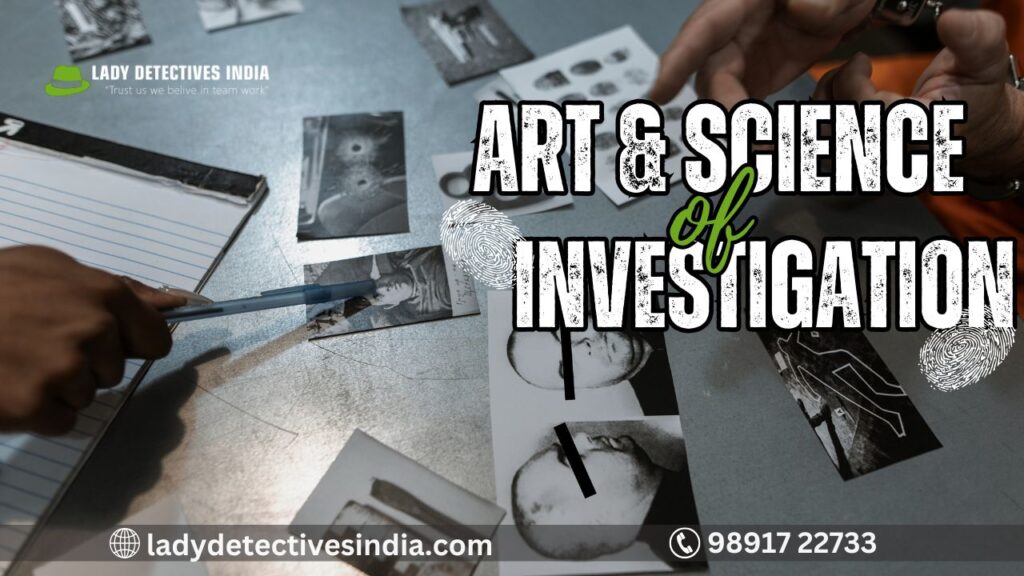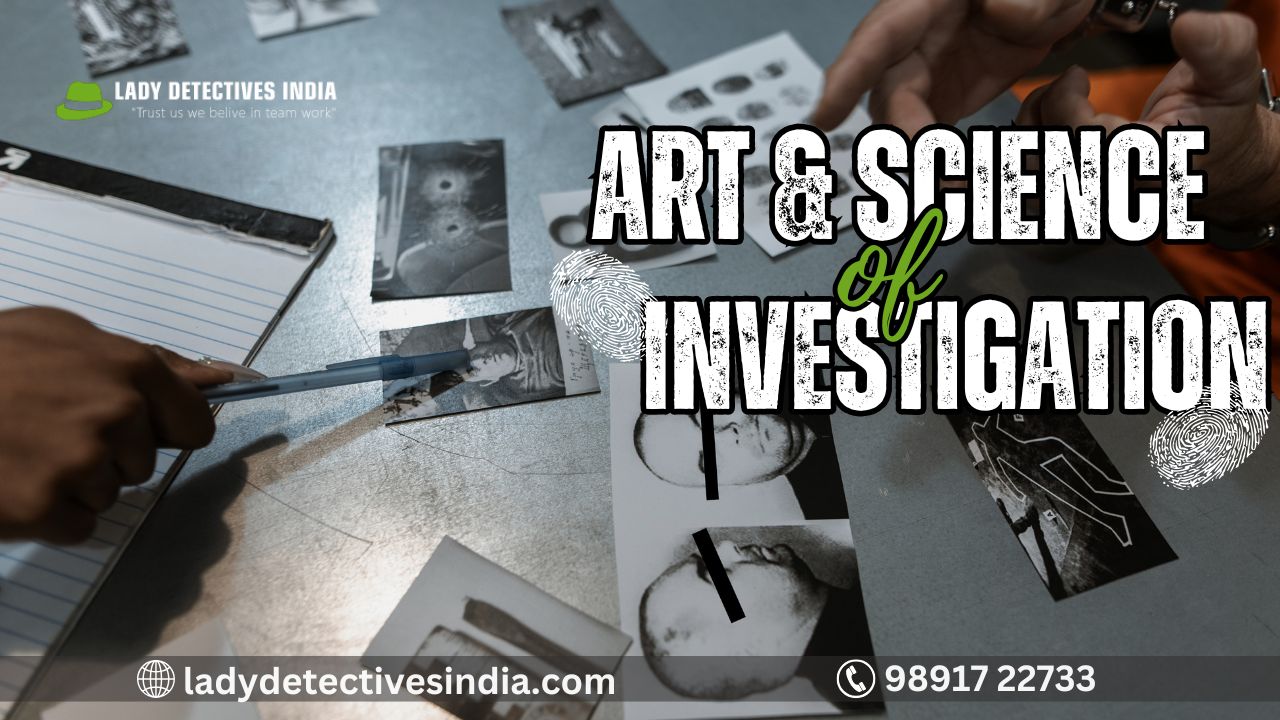Riddles of science and problems of the human soul are the things that attract us to the world of investigation. No one can stay passive when reading about detectives on the one hand, and leading such a life on the other, full of dramatic turns and twists due to the fabulous combination of intuition and logic. A detective agency in India that gives you the clear aspect of how investigations are done and what to do in that time. An investigative investigation is a method of inquiry that draws on scientific methods and human psychology to arrive at the facts.
The Science of Investigation: Methodical Approaches
Gathering Evidence: Forensics and Technology
Solid evidence forms the backbone of any investigation. This process starts with forensics, the science behind connecting physical clues to people and events.
Utilizing Digital Forensics
At this time of technology, the data stored in mobile phones and computers is thorough enough to reveal a lot. Digital forensics technology proves to examine conversations and behaviors of a suspect.

Importance of Chain of Custody
To keep the evidence quality, it is necessary to have a legitimate chain of custody. This procedure is a guarantee that the evidence is being gathered, preserved and analyzed without any outside intervention.
Analyzing Data: Pattern Recognition and Deduction
Collecting small pieces of information and analyzing them is a crucial part of the work of the data analysis.
Statistical Analysis in Investigations
Statistics help detect patterns. By analyzing data, investigators can identify trends and anomalies that lead to breakthroughs.
Crime Mapping and Geographic Profiling
Geographic profiling uses crime data to determine where a criminal is most likely to strike next. This technique offers valuable insights into criminal behavior, guiding law enforcement.
Utilizing Investigative Software and Databases
Modern investigations rely on specialized software to manage and analyze large amounts of information. These databases help investigators sort through endless data, highlighting critical information.
The Art of Investigation: Intuition and Interpersonal Skills
While science is essential, the art of investigation involves understanding people.
Building Rapport and Trust
Creating a connection with witnesses or suspects improves the chances of gathering information.
Active Listening Techniques
Listening actively shows respect, encouraging others to share more. This includes moving your head, looking into the person’s eyes, and wrapping up what they said in one sentence.
Interviewing Techniques: Eliciting Truthful Information
As the questions are phrased it can either make or break the authentic data collection.
Open-Ended Questions vs. Leading Questions
Open-ended questions call for elaborate explanations, alternatively, leading queries may offer you tips on the expected answer. Finding the balance is paramount.
Recognizing Deception
Understanding signs of deception, like inconsistencies in stories, is vital. Investigators must remain observant and analytical.
Profiling and Psychological Analysis
Profiling can provide a deeper understanding of a suspect’s motives and behavior. Psychological analysis helps create a clearer picture of who might commit a crime.
Common Investigative Methods and Techniques
Investigators employ various methods to piece together the puzzle.
Surveillance and Undercover Operations
Surveillance and Undercover operations can provide important information but should be approached legally.
Ethical Considerations in Surveillance
Balancing the need for information with personal privacy rights is essential. Investigators must consider the impact of their actions.
Legal Limits on Investigative Methods
Understanding the law is vital to ensure that methods used do not violate rights. Adhering to these guidelines maintains investigation integrity.
Case Management and Documentation
Keeping detailed records is essential. Documents help track progress and maintain transparency in investigations.
Case Studies: Real-World Examples of Successful Investigations
Examining real cases can offer important lessons.
Landmark Cases and Their Impact
High-profile investigations, like the Watergate scandal, reveal how thorough important investigation leads to accountability. Not only did this case reshape politics, but it also emphasized the importance of investigative journalism.
Analysis of Investigative Successes and Failures
Investigating both successes and failures helps identify best practices and common pitfalls. For instance, poorly communicating findings can lead to misunderstandings and mistakes.
Ethical Considerations in Investigation
Every investigator must consider ethics in their work.
Balancing Justice and Due Process
Ensuring justice without compromising due process is a tightrope walk. Potential bias and misconduct can threaten the integrity of investigations.
Potential for Bias and Misconduct
Bias can creep into investigations, shaping outcomes unfairly. Investigators must strive for objectivity and fairness.
Maintaining Integrity
Integrity is key in maintaining public trust. Investigators must commit to ethical practices and transparency.
Conclusion: Mastering the Investigative Process
To master Science of investigation, one must blend art and science.
Key takeaways include understanding the balance between methodical approaches and human interactions. As technology advances, future trends may shape investigation, making it even more sophisticated.
For those interested in further learning, many resources are available, from online courses to textbooks. Contact our detective agency in Noida that can give you the answer to all your questions. Staying informed enhances skills and knowledge in this dynamic field.














